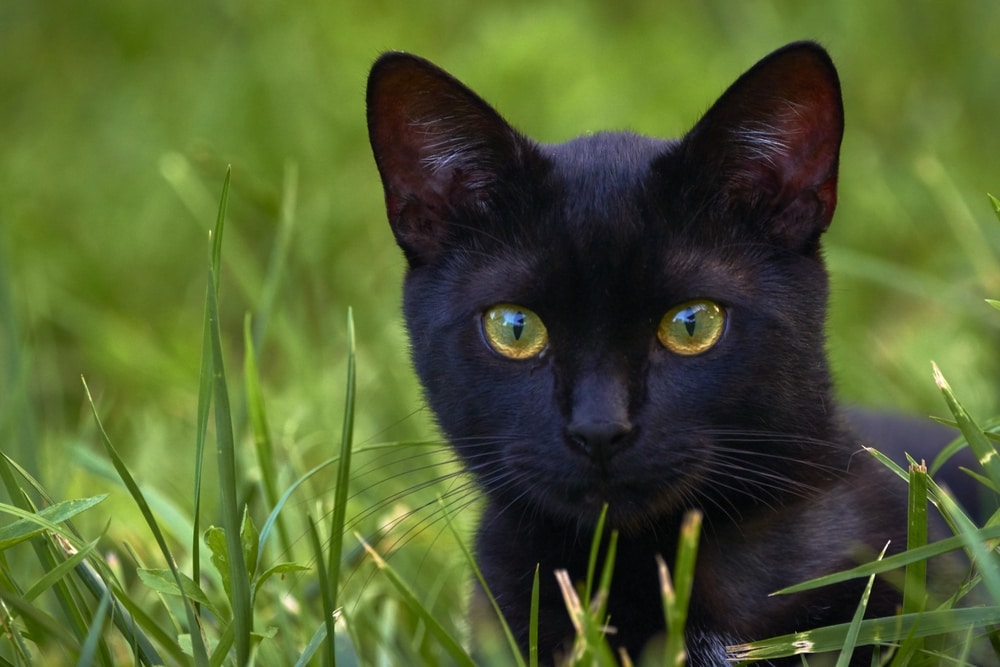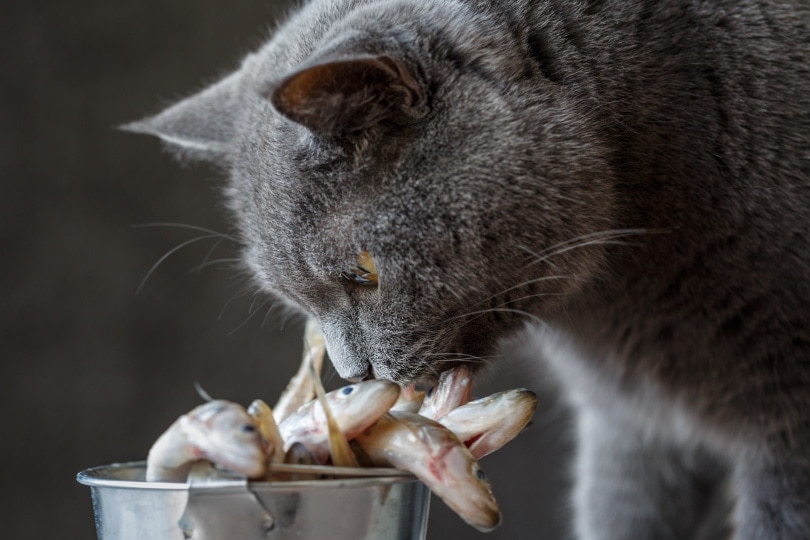Can Cats Eat Daisies? Nutritional Facts & Safety Guide
Updated on
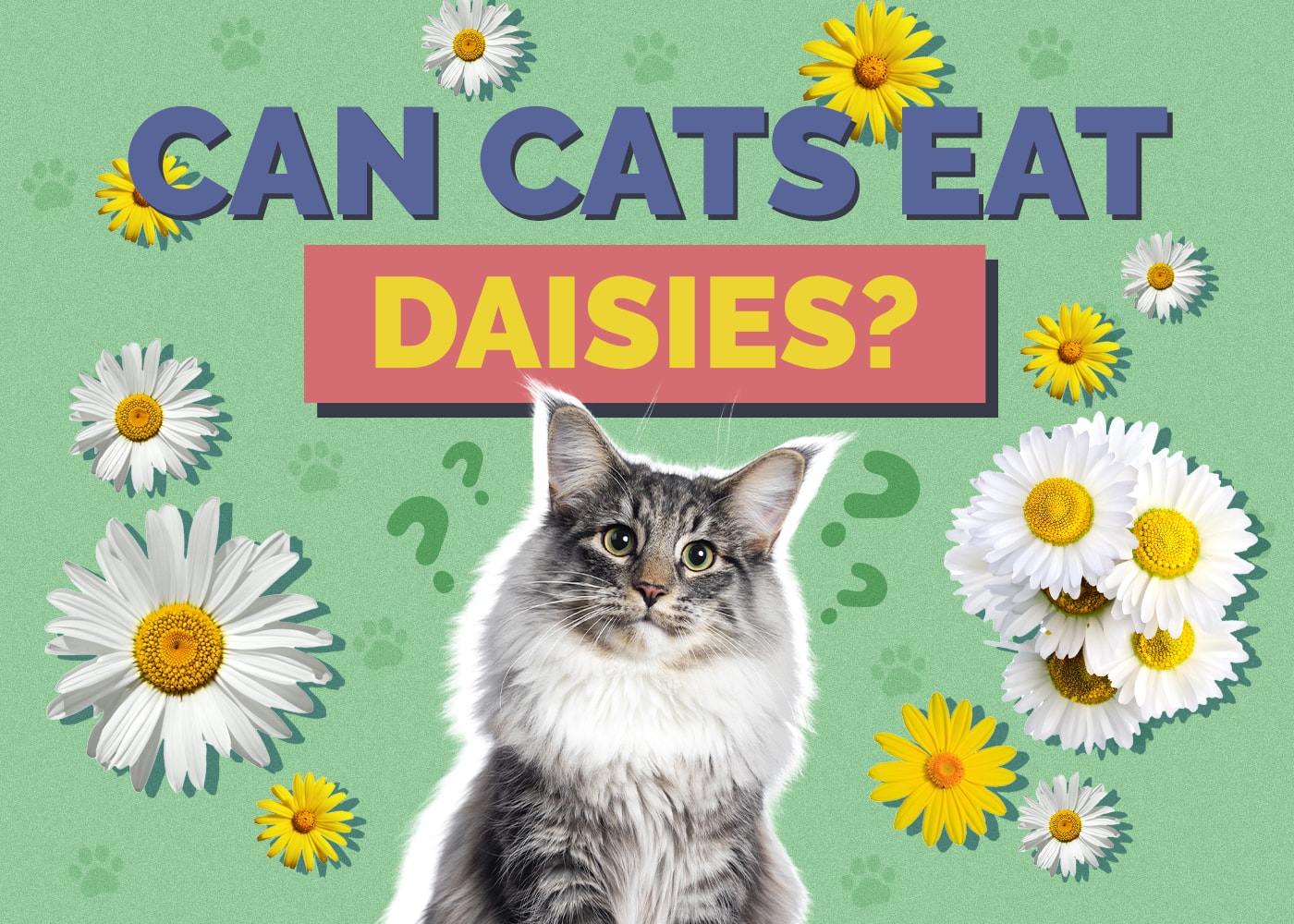
Whether you have lots of flowers in your garden or you love bringing cut flowers inside to decorate with, you have to be careful if you have cats. Some plants and flowers can be dangerous if your cat eats them. One such flower is daisies, and although they aren’t the most toxic plant for cats, they can cause harm to your cat if ingested.
Daisies, and other types of flowers and plants as well, are not an essential part of your cat’s diet. However, their curiosity may get the better of them and they may be tempted to take a bite out of a daisy just to see what it is and what it tastes like. Continue reading, because we’ll share with you why it isn’t a good idea for your cat to eat daisies.
Are Daisies Toxic to Cats?
You’re probably aware that there are many plants that cats can’t eat, even if you aren’t an experienced cat owner. Certain plants can be toxic to cats which can result in them getting very sick or even possibly dying if they eat one of them.
Because of this, the American Society for the Prevention of Cruelty to Animals (ASPCA) provides a list of plants that are toxic to cats. On this list are daisies, and even though they aren’t as toxic to cats as plants such as tulips and lilies, they can still make your cat very sick.
Daisies are part of the Compositae plant family, and a lot of the plants (not all) in this family are toxic to cats. Other plants in the daisy family that are toxic to cats include chamomile, chrysanthemum, and dahlia to name a few. But some types of daisies aren’t toxic to cats, which we’ll talk more about later.
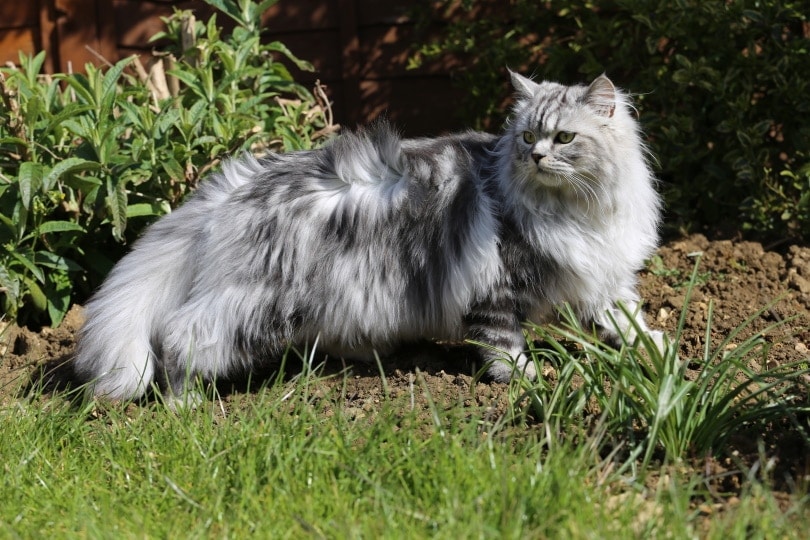
Why Are Daisies Toxic to Cats?
Almost all plants contain naturally occurring chemicals known as terpenes. These are part of a plant’s natural defense system. Daises contain two of these terpenes: sesquiterpene and lactones. In addition, daises also contain a naturally occurring insecticide known as pyrethrin.
All these chemicals affect cats in different ways as our feline friends can’t properly process them. Lactones and pyrethrins affect a cat’s nervous system, and sesquiterpene causes skin irritation and gastrointestinal distress.
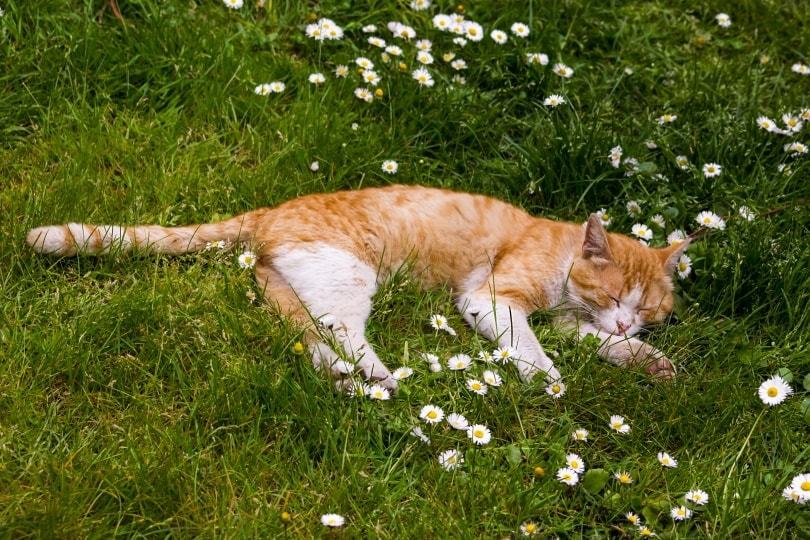
What Happens If a Cat Eats a Daisy?
We mentioned earlier that daisies aren’t the most toxic plants for cats. However, eating a daisy can still make your cat sick. Your cat gets stick because of their inability to process the compounds that are naturally found in daisies. But exactly how sick they get depends on how much of the daisy or how many daisies they ate.
Common signs that are associated with a cat eating a daisy include:
- Vomiting
- Diarrhea
- Dermatitis
- Excessive drooling
- Loss of coordination
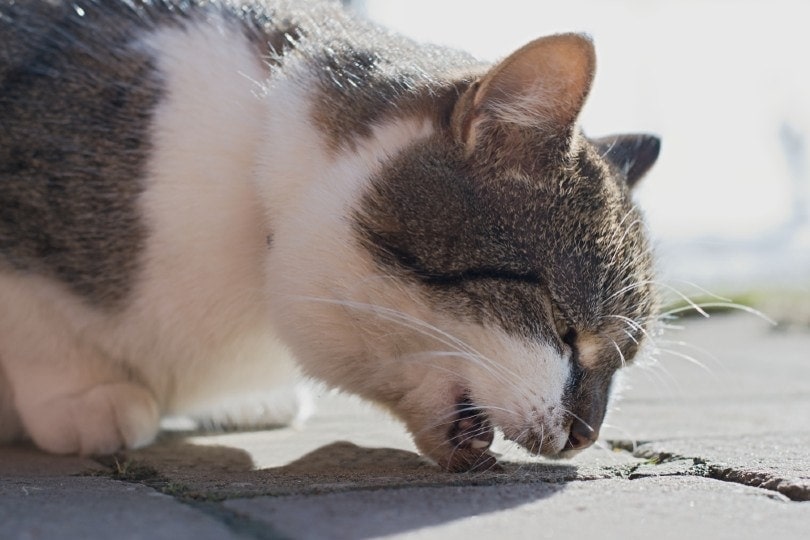
Vomiting and diarrhea are typical signs that your cat ate something they shouldn’t have, and are a result of whatever they ate being unable to pass through the digestive system properly. Your cat may also start drooling excessively or develop foam in and around their mouth as a result of eating a daisy.
In some cases, a cat may develop dermatitis after eating a daisy. Dermatitis is essentially an allergic response to eating a daisy and may result in a rash or itchiness. In more severe cases (such as if a lot of a daisy was consumed), your cat may develop a loss of coordination or have a bloody stool.
All of the aforementioned symptoms are very noticeable and are a sure sign that something is wrong with your cat.
If you do notice any of the above symptoms, regardless of the cause, you should reach out to an animal poison control hotline or get your cat to a veterinarian immediately. Your vet will examine your cat and formulate a treatment plan appropriate for them based on the extent of the clinical signs and the results of any diagnostic tests they run on your feline.
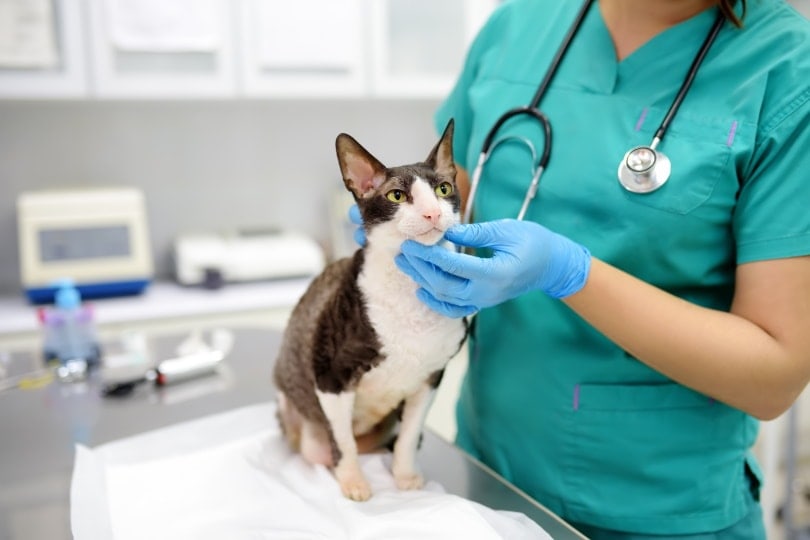
How to Prevent a Cat From Eating Daisies
If your cat wants to eat a plant out of curiosity, there are ways to prevent them from doing so.
The best way to prevent a cat from eating daisies is to not bring them into the house if your cat is an indoor cat. It is also encouraged to not allow pet cats to roam outdoors, as this not only puts them at risk of eating toxic flowers such as a daisy but also exposes them to many other problems such as injuries and accidents, fights with other animals, or ingestion of other toxins (such as rodent poisons).
If your cat stays indoors but can go outside with supervision, you can still plant daisies. However, it’s a good idea to have a barrier between your flowers and your cat. For example, setting up a “catio” (cat patio) for your cat with adequate fencing will keep your cat safe from outdoor risks while still allowing them to enjoy the scenery. Alternatively, you could construct or install a fence around your garden, to ensure cats (and other animals) don’t disturb or eat your plants.
Bringing daisies inside isn’t recommended. Cats are exceptionally agile and can easily jump onto surfaces or counters where you would place a daisy, and may end up consuming the flower. They are also inquisitive and would be drawn to the daisy due to its smell and the fact that it would be a new item in their territory.
If daisies are your favorite flower and you want to plant them but you’re afraid your cat will eat them, you can always plant some that are safe for cats. Although most varieties of daisies are toxic to plants, there are a couple that aren’t.
Which Daisies Are Not Toxic to Cats?
If you want to plant daisies that are non-toxic to cats, then African daisies and gerbera daisies are good choices according to the ASPCA. These are from the same family, but a different genus, which isn’t toxic for cats.
There are plenty of other plants that are safe and non-toxic for cats as well. However, it is important to remember that plants are not an essential part of a cat’s diet, as they are carnivores. Even if a plant is non-toxic, it’s not a good idea to let your cat eat it. Plus, eating too much of anything can upset your cat’s stomach even if it isn’t considered to be poisonous.
Now that you know what you can safely feed your cat, it’s just as important to find a bowl that supports their health and well-being. With whisker-friendly bowls and a wide tray to catch any spills, our Hepper NomNom Cat Bowl is our favorite option.
Conclusion
Cats should not be allowed to eat daisies, as many varieties are toxic. If your cat eats a daisy, they may experience signs including vomiting, an allergic reaction, or loss of coordination. If you notice anything out of the ordinary, you should seek treatment from a vet.
The African and Gerbera daisies are safe for cats. However, allowing your cat to eat them is still not advised, as doing so may result in an upset stomach.
Related Reads:
Featured Image Credit: Couleur, Pixabay




